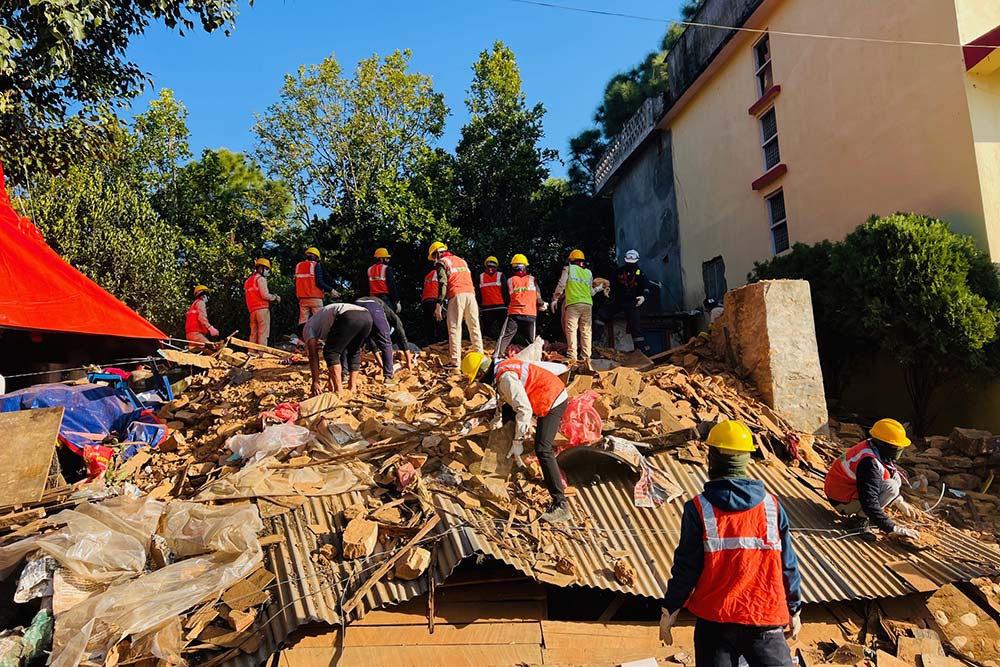
While people are thrust into debt in the form of a plausible opportunity, they must also recognise that it does not become a trap.
As the fear of Covid 19 somewhat abates, even those business who have felt the full brunt of the pandemic have started to resume operations. Well, at least the lucky ones who did not have to shut down or drastically change their structure due to financial and operational constraints. Small and medium sizes enterprises in Nepal usually lack proper financial access and even without the global pandemic coming into the folds, a majority of the SME’s in eventuality cease to exist as a result of lack of proper financial backing and management knowlegde.
However, prior to the lockdown, Banks and Financial Institutions have been providing loans to farmers as agricultural loans and subsidised loans for women entrepreneurs. According to the Nepal government objectives, BFI’s must allow financial access to all people inclusive of women entrepreneurs in a bid to increase women’s involvement in economic activities, to help develop skills, promote entrepreneurship and create jobs. Last year, Nepal Rastra Bank issued a notice to BFIs asking them to issue agricultural loans within a week of receiving application. This was a welcome sign for the farmers as they had been persistently vocal in claiming that banks do not provide agriculture loans intentionally.
Importance of Loan
Prior to the outbreak of the corona virus, an entrepreneur’s journey, be it women or farmers, was filled with challenges if they lacked capital. Consequently, the lockdown and shut down of businesses rendered economic operations to come to a complete halt also leaving masses unemployed. As a result, access to business loans has gained importance in the current predicament; as loans are not just about obtaining cash but to secure survival. The biggest advantage of taking out business loans during tough economic times is that entrepreneurs can increase the working capital of their enterprises. In recent years, banks have been granting loans to entrepreneurs to both boost economic activities as well as meet Rastra Bank’s mandate to increase access to financial services for micro and small enterprises. The Monetary Policy unveiled in mid-July this year which is basically a rescue package to mitigate the economic effects of the pandemic aims to support business get back to normality. As reported in a national daily, the policy dictates that commercial banks needs to lend at least 15% to the agriculture sector by 2024 and 15% to micro, small and medium enterprises among others.Women Entrepreneur Loans
According to a report compiled by UK AID, there are an estimated 111,442 SMEs in operation in Nepal, and among these, women owns about 14,300 businesses. The figure accounts for only about 12% of the businesses. ‘Of this small fraction of women SMEs, a much lower proportion avail financial services when compared with men. The main reason for this lower usage, especially in regard to credit products, is that women do not possess equal rights to property. Further it is important for a woman to have her husband’s support to start and run a business. As a result, access to financing remains the biggest hindrance because banks prefer fixed assets as collateral that few women entrepreneurs possess. However, with progressive policy being introduced, today access to finance and gaining approval for loans for women entrepreneurs is comparably easier than in the past. Rajit Maskey Chief Credit Officer, Shangri-la Development Bank claims, “From this fiscal year, Rastra Bank, has made it compulsory that every branch of the bank is required to give loan to a minimum of five women entrepreneurs and maximum of 500 women entrepreneurs. In our bank, we have assigned a special unit that focuses and is responsible to provide subsidised loans to women entrepreneurs”. He adds, “I believe the subsidised loan with low interest rate is a huge help for women entrepreneurs. If the loans are properly utilised, then we have the opportunity to lift the women entrepreneur ecosystem and the country’s economy to greater heights”. “It has been about one and a half years since Rastra Bank introduced Women Entrepreneurship Development Fund which is a subsidised loan. According to the Rastra Bank’s directives, all BFI’s are required to provide loans to women entrepreneurs. Since, Rastra Bank introduced this mandate, we developed our own loan products to cater to the needs of women entrepreneurs as per the directives of the Rastra Bank,” explains Maskey elaborating, “However, there are number of criteria that must be met by women entrepreneurs in order to be approved for loan. The criteria are defined by the Rastra Bank. In certain aspects, we can add few elements but we cannot deviate away from the criteria as defined by the Rastra Bank”. To briefly outline the said criteria as stipulated by the Rastra Bank, the woman loan applicant has to be above the age of 18; group guarantee of women entrepreneurs (for example minimum of five women in a group); a statement that declares where the given loans will be utilised and the operating business or business plan has to be acceptable to the bank for financing. These aforementioned mentioned criteria are just the basic outline and may differ from on bank to another.Agriculture Loans for Farmers
65% of the population of the country depends on agriculture for their livelihood. As a result, BFIs have been extensively focusing on catering to the rural and semi-urban farmers by providing agricultural loans with the provision of subsidy as stated by Nepal Rastra Bank. Last August Nepal Rastra Bank capped the interest on agriculture and business loans of up to Rs 1.5 million in a bid to stimulate the agriculture sector. According to reports in the national news, ‘Banks have been asked to approve agriculture loan within a week of the application date. According to NRB directives, the banks that are unable to issue loan must give a written notification to the applicant.’ The new rule additionally dictates that the banks have to accept arable land without proper access to road as collateral and that banks are barred from charging any service fee or other surcharges while issuing agriculture loan. Maskey explains, “For farmers we have ‘agriculture loan’ products. To apply and quality for this loan, the farmers do have to specify the kind of work they are doing, for example, plantation or animal husbandry or poultry, and be registered within a concern body, either with cottage industry or as a business”. “For farmers the loan sizes are generally larger compared to women entrepreneurs”, states Maskey explaining, “For example, banks do not give loans if a particular land does not have an access to roads. However, for agriculture loans we have considered the situation”. Sanjeev Manandhar, General Manager of Prime Commercial Bank claims, “We have been focusing on agriculture loans. Before micro finance interest rate was above 20% across BFIs. Our bank has a subsidised loan with an interest rate of 3 to 4%”.Implications of Covid 19
According to Maskey, “In terms of agriculture loans and loans for women entrepreneurs, there has not been a significant difference. However as we currently stand, I believe that there is an increase in loan applications”. As a result of the lockdown imposed by the outbreak of the disease, there was major job crisis as almost every sector came to a halt. In addition, droves of migrants working aboard were condemned to return back to Nepal. In most cases, these returnees and out of work individuals decided to venture into their own business. “Because of Covid 19, there was a job crisis in urban areas and people started doing their own business on a micro level or got into agriculture”. Manandhar shares, “For about six months we could not approve or give out any loans because the demand was very low. But after the lockdown was lifted, the loan request has substantially increased. If you look at our micro finance demand, we are experiencing the most demand in our history. One of the reasons for the growth in loan demands, can be that many people who have come back to Nepal after working abroad have found that their future is uncertain, and I believe that they have decided to start their own agriculture businesses here”. Manandhar adds, “Since Covid 19 has disrupted all sectors, of course there is a challenge when it comes to recovery. But we are aware that this is a momentary hurdle and when a vaccination does arrive in the country, we are confident that we will recover”. While micro, small and medium entrepreneurs of both genders are seeking ways to survive, BFI’s in the country are trying to ensure that they meet the government mandate to keep the economy running. Here it is critical to understand that while entrepreneurship offers this opportunity to fight an economic crisis, it is not a blanket solution and entrepreneurship is not for everyone. While people are thrust into debt in the form of a plausible opportunity, they must also recognise that it does not become a trap.
Published Date: December 16, 2020, 12:00 am
Post Comment
E-Magazine
RELATED Feature





